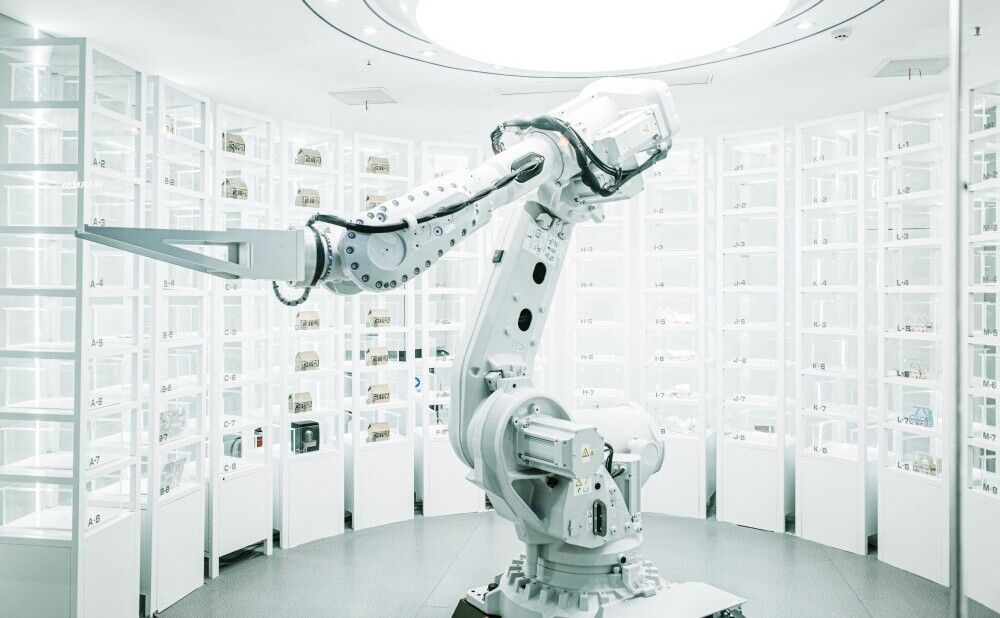 Personal AI assistants are becoming a staple in our tech-savvy world, acting as digital helping hands. These smart tools, powered by artificial intelligence, are here to make life’s daily grind a little easier. To understand their magic, we need to look at their tech roots. They’re designed on complex algorithms that focus on natural language processing, which is all about helping machines comprehend human language naturally. This helps them respond to our commands just like a human would.
Personal AI assistants are becoming a staple in our tech-savvy world, acting as digital helping hands. These smart tools, powered by artificial intelligence, are here to make life’s daily grind a little easier. To understand their magic, we need to look at their tech roots. They’re designed on complex algorithms that focus on natural language processing, which is all about helping machines comprehend human language naturally. This helps them respond to our commands just like a human would.
The numbers tell quite a story. The adoption rate of AI assistants has skyrocketed globally, with millions of people turning to them for help with everything from setting alarms to managing calendars. The rise of smart devices like smartphones and speakers has fueled this growth. As gadgets get smarter, they team up with these AI assistants to bring convenience to another level.
Now, with many options out there, how do you choose the best AI buddy? It all comes down to specifics: some folks might prefer Siri for its Apple ecosystem integration, while others might go for Google Assistant’s impressive search capabilities. Alexa shines in smart home management, while Cortana could be your go-to for a Windows-integrated experience. Each offers unique perks, so picking one depends on your tech needs and personal preferences.
These AI companions are more than just a tech trend. They’re reshaping how we interact with technology and getting us ready for a future where AI is at the heart of everything. As these systems continue to get smarter, they’re set to play an even bigger part in transforming our day-to-day lives.
Enhancing Productivity and Daily Life: The Benefits of Using Personal AI Assistants
Imagine having a digital assistant that manages your day-to-day tasks with the efficiency of a well-oiled machine. That’s what personal AI assistants bring to the table. They are your go-to for setting reminders, managing to-do lists, and even sending emails on your behalf. It’s like having a personal secretary right in your pocket, ready to organize your life.
For small business owners or entrepreneurs, these AI helpers can act as virtual team members. Scheduling meetings, setting task reminders, or even managing inventory becomes seamless. This gives you back precious time to focus on growing your business or catching up on the work-life balance you cherish.
What truly sets AI assistants apart is their ability to provide location-based assistance. Need directions while driving? Looking for the nearest café to grab a quick bite? Just ask, and they guide you like a professional navigator. It’s all about making your life smooth and hassle-free, whether you’re at home or on the go.
Real stories from users highlight how life-changing these assistants can be. From busy professionals saving countless hours to parents managing their households more effectively, the impact is visible. These accounts speak volumes about how AI assistants weave convenience and efficiency into our daily routines. So, whether you’re swamped at work or trying to juggle multiple responsibilities, these digital aides can be the productivity boost you’ve been waiting for.
Addressing Concerns and Myths: Privacy, Security, and Dependency on AI
When it comes to technology, privacy and security always pop up as top concerns. With personal AI assistants, it’s no different. Users often worry about their data being misused or their privacy compromised. Tech companies are aware of these fears and work hard to address them with secure protocols and transparent privacy policies.
It’s not just about privacy, though. There’s a swirl of ethical questions around using AI in our everyday lives. From data usage to decision-making biases, these are big topics for debate. Ethical AI use involves making sure these assistants can’t misuse information or unfairly influence decisions.
Myths about AI assistants creating dependency are floating around, too. Some folks believe relying on technology makes us less capable, but that’s not the whole truth. AI assistants are there to handle mundane tasks and free up our brains for more critical thinking and creativity. Instead of fostering dependence, they’re about amplifying our capabilities while managing repetitive tasks.
Security measures in these systems are robust, designed to protect your data from cyber threats. Companies incorporate encryption and regular updates to ensure your information is safe. So while it’s normal to have concerns, the reality is these systems are created with the user’s security and privacy at the forefront.
The Future of Personal AI Assistants and Their Role in an AI-Driven World
Looking ahead, the future of personal AI assistants is brimming with potential and exciting possibilities. As AI technology keeps advancing, these tools are set to become even more integrated into our lives. Innovations like enhanced voice recognition and improved natural language understanding will make interactions with AI feel even more human-like, adding a new layer of seamless experience.
One area that’s buzzing with potential is the integration of AI assistants with smart homes and the Internet of Things (IoT). Imagine having every appliance, from your fridge to your lights, synced and controlled by a single AI hub. This kind of interconnectedness could transform domestic life into a more efficient, enjoyable experience. AI assistants will likely play a massive part in how we manage our living spaces, optimizing energy use and enhancing convenience.
Future trends also point towards AI becoming more personalized. As these systems evolve, they’ll learn better from user habits and preferences, offering tailored suggestions and advice. This means your AI assistant won’t just be smart – it’ll be deeply in tune with what you need, when you need it. This personalized approach could redefine productivity tools and personal management systems, making every interaction more meaningful.
Experts predict that as we step further into an AI-driven world, personal assistants could shape industries and daily life in ways we can’t yet fully predict. They’re already influencing how people interact with technology, and as they grow more sophisticated, their impact will expand. From helping us manage our time to assisting in complex decision-making, these digital companions will be key players in the future tech landscape.
